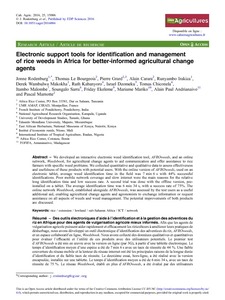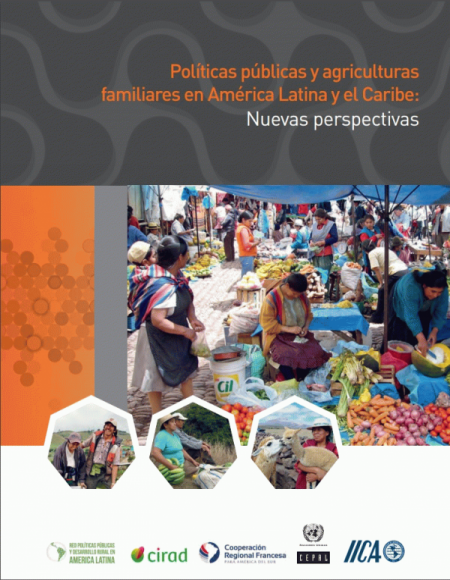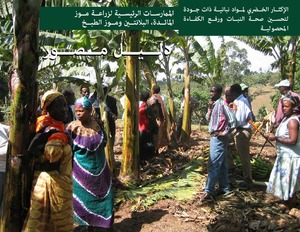CIRAD is a French research centre working with developing countries to tackle international agricultural and development issues.
Status
CIRAD (Centre de coopération internationale en recherche agronomique pour le développement) is a public industrial and commercial enterprise (EPIC) under the joint authority of the Ministry of Higher Education and Research and the Ministry of Foreign and European Affairs.
Mandate
CIRAD works with the whole range of developing countries to generate and pass on new knowledge, support agricultural development and fuel the debate on the main global issues concerning agriculture.
CIRAD is a targeted research organization, and bases its operations on development needs, from field to laboratory and from a local to a global scale.
Activities
CIRAD's activities involve the life sciences, social sciences and engineering sciences, applied to agriculture, food and rural territories.
CIRAD works hand-in-hand with local people and the local environment, on complex, ever-changing issues: food security, ecological intensification, emerging diseases, the future of agriculture in developing countries, etc
Members:
Resources
Displaying 41 - 45 of 72Crop ontology: integration of standard variables
The Crop Ontology (CO, http://www.cropontology.org/) is a resource of the Integrated Breeding Platform (IBP, http://integratedbreeding.net/) providing breeders with crop specific terms for fieldbook edition and data annotation. Until Mai 2015, a plant phenotype was annotated with 3 CO identifiers for the trait, the method and the scale, respectively. Yet, breeders’ fieldbook and most phenotypic databases are designed to annotate a datapoint with only one identifier.
International Land Deals for Agriculture
Land acquisitions continue to be an important trend
Large-scale land acquisitions continue to be an important issue for governments, development organisations, NGOs and farmers’ organisations all over the world; this remains the case even in times of global economic slowdown, recession and crisis. The scale of this trend and its significant impacts on rural transformation and livelihoods make it necessary to further monitor, observe and positively influence such deals wherever possible.
Electronic support tools for identification and management of rice weeds in Africa for better-informed agricultural change agents
We developed an interactive electronic weed identification tool, AFROweeds, and an online network, Weedsbook, for agricultural change agents to aid communication and offer assistance to rice farmers with specific weed problems. We collected quantitative and qualitative data to assess effectiveness and usefulness of these products with potential users. With the online version of AFROweeds, used on an electronic tablet, average weed identification time in the field was 7 min 6 s with 44% successful identifications.
Políticas públicas y agriculturas familiares en América Latina y el Caribe
La obra reúne un conjunto de estudios de caso y un análisis transversal de las políticas públicas para la agricultura familiar en once países latinoamericanos, complementados por un ensayo interpretativo acerca de las implicaciones para políticas públicas derivadas de los principales eventos internacionales del Año Internacional de la Agricultura Familiar en América Latina.
Propagating quality planting material to improve plant health and crop performance, key practices for dessert banana, plantain and cooking banana: Illustrated guide (Arabic) ??????? ?????? ????? ?????? ??? ???? ?????? ??? ?????? ???? ??????? ????????...
This illustrated guide summarizes the key practices for producing clean planting material of banana with a high yield potential for smallholders, depending on the pests and diseases which are present. The guide is also designed to contribute to better planning of the propagation of planting material for rural development and disaster relief projects.






